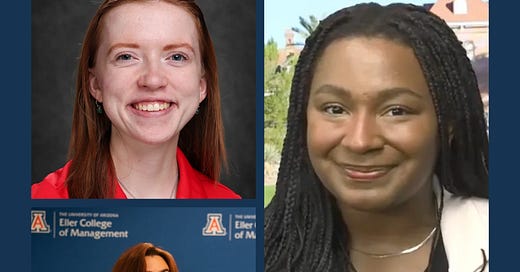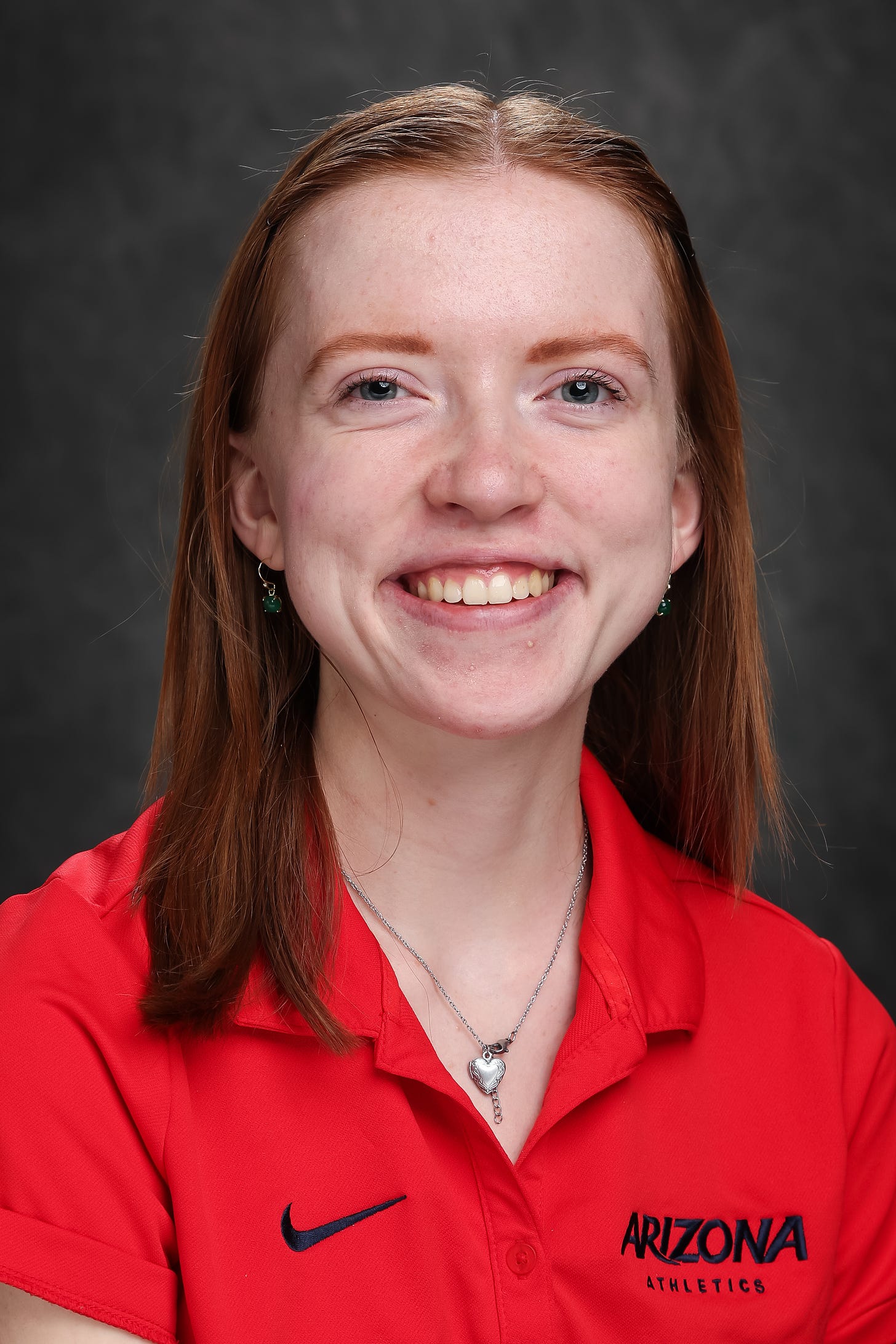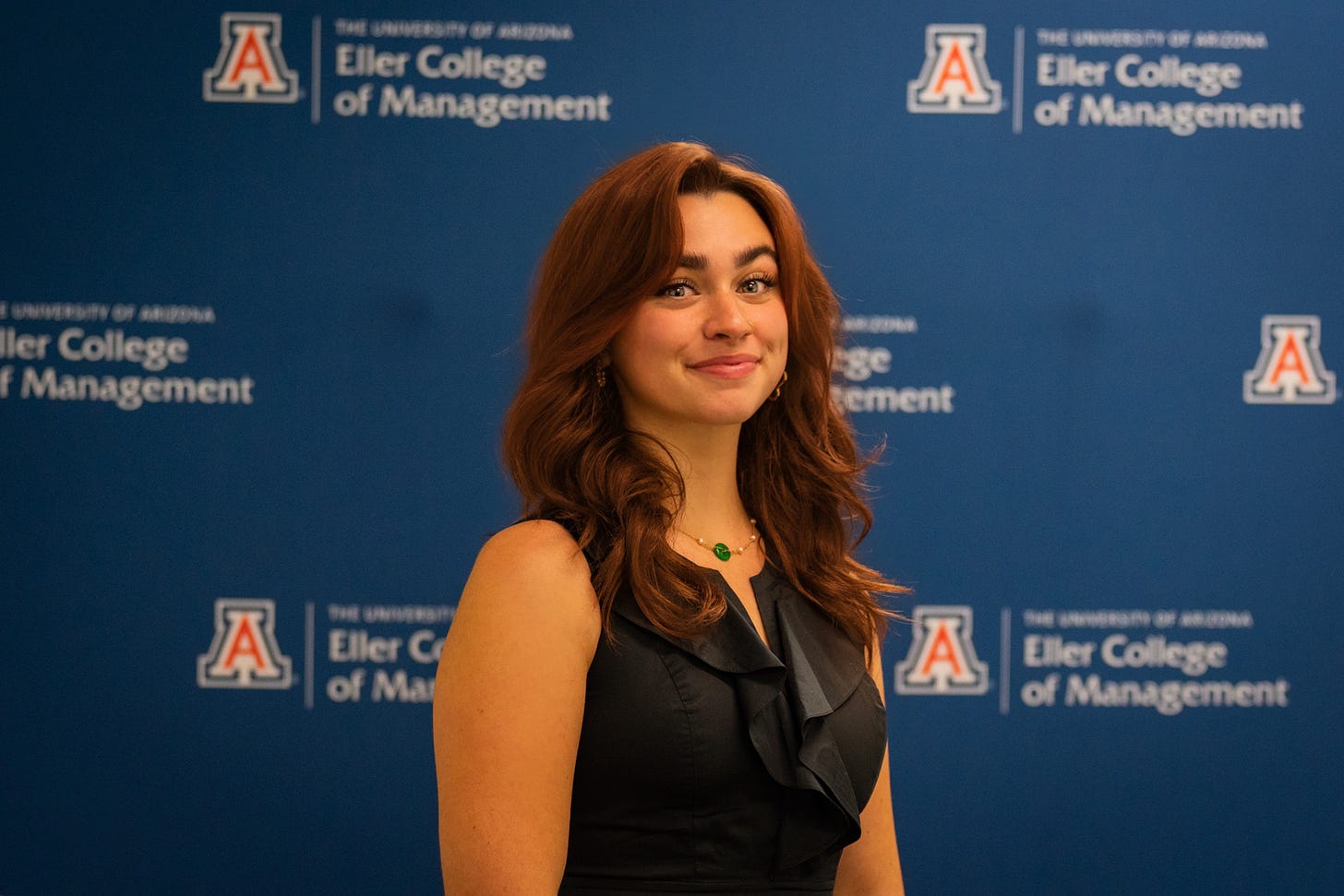The Daily Agenda: Say 'hello' to the future of journalism
Three UA journalism students are joining the Agenda … We’ve got big plans for them … No confidence in Nanos.
It’s the second week of classes at the University of Arizona, and our new student interns have already hit the ground running, on the heels of a week of bombshell news about their very own school.
It was more than enough to get them excited about digging into public affairs.
We hosted our first intern last semester shortly after launching the Tucson Agenda and were grateful to have journalism student Kyra Berg on hand to provide some great reporting. But she also helped us figure out our needs and determine how to make sure these positions offer the greatest benefits to everyone involved.
We have big plans for this semester: With the addition of three student journalists, we’ve more than doubled our ranks. And we’re proud to say that this semester, all of these students will be paid for their work (more about that later).
These students will allow us to expand our reach in a number of ways, both on social media and with our coverage and storytelling format. But enough about us. We want to tell you about some of the young journalists who are helping us grow the Agenda.
Sam Parker is keeping an eye on Oro Valley, Marana and South Tucson, along with some of the advisory boards, committees or commissions that provide input to our various town and city councils. Sam is news editor of the UA’s student-run news publication, the Daily Wildcat and we’ve featured her stories in our “other news” section a handful of times.
“For as long as I can remember, I’ve held a deep love for reading and writing as tools of expression and thought, a love which naturally translated into my interest in journalism,” she said. “As I started covering public affairs last semester, I was immediately drawn to the community-oriented aspect of this branch of reporting. Through this experience, I gained incredibly valuable knowledge about and exposure to issues in Tucson.”
Sam is excited to build upon that knowledge and dig into some of Pima County’s under-covered and up-and-coming communities.
But just as it’s important to keep an eye on local governments, we should also be monitoring our local schools. So our second intern will spend the semester following governing boards and digging into the issues impacting our school districts.
Liv Leonard has lived in Tucson since she was 6 years old. She graduated from Catalina Foothills High School in the spring of 2020. She’s worked at the DW as an arts and life reporter, hosted her own radio show at KAMP, the UA’s student-run station.
Liv has a keen interest and key insights into the inner workings of Catalina Foothills school district, and will be taking a closer look at her alma mater, as well as some of our other districts, including Tucson Unified and Sunnyside.
“I'm thrilled to end my college career doing what I love: Writing and exploring Tucson as much as I can,” she said.
We can’t wait to see what these two will turn up through their reporting, so keep an eye out for their stories starting in a few weeks.
Local reporting is key to understanding how your tax dollars are spent and why elected officials make decisions. Upgrade to a paid subscription so we can keep doing it!
On the social media and multimedia front, we’re welcoming Desarae Tucker into the mix. She comes to the Agenda with experience writing for the DW (we’ve also featured her byline in “other news”) and as an anchor for UATV. Desarae is looking forward to learning more about the world of newsletters, but more importantly, helping us create content for TikTok and reach younger readers through Instagram and more.
We ended the year raising funds to pay for a part-time social media guru and Desarae will be bringing on-camera experience and a younger pair of eyes into the mix.
We know that young people want to be involved in the decisions that affect their lives, and we’re hoping to help them make some informed decisions in the 2024 election and beyond.
“I am excited to be a part of the Tucson Agenda team and to hone my skills in both social media management and broadcast journalism,” Desarae said.
We’re grateful to have all this new talent working with us and for our ability to compensate them for their work. We were able to secure a grant to support our bringing Desarae on and a newly created UA fellowship will provide funding for Sam and Liv.
The Jamieson-Metcalf Family Scholarship was funded by alums William “Bill” Jamieson and his granddaughter, Hunter Metcalf.
Jamieson served as a U.S. Navy Public Affairs Officer after graduating from the UA and went on to work in nonprofits and government, including serving in the administrations of former Arizona governor Bruce Babbitt and former Georgia governor and U.S. President Jimmy Carter.
“The foundation of a successful democracy will crumble without aggressive and professional news coverage. The public process, from local institutions to the federal government, requires a strong press to be both a watchdog of government actions and a source of truthful, complete information for the public,” Jamieson said. “In this era of ‘alternative facts,’ dubious sources and partisan agendas we are in dire need of professional journalists who earn public trust with thorough and truthful reporting.”
Jamieson said this all starts at the local level and he thinks the Agenda and our inaugural class of fellows are up for the challenge. We can’t wait to prove him right.
We’ll be launching our TikTok soon, but our other social media channels are up and running. Check them out and stay up-to-date on the latest Tucson Agenda news.
Not his biggest fans: A group representing more than half of the Pima County Sheriff Department’s deputies has issued a vote of no confidence in Sheriff Chris Nanos, with 98.8% of members signing on. A news release from the organization lists several grievances, including general mismanagement, his handling of a deputy’s alleged sexual assault by her sergeant, the decline of the jail under his leadership and other issues.
That’s not the issue: University of Arizona President Robert C. Robbins sent out a campus wide financial update on Tuesday, saying he wanted to “take a moment to correct the record” about the resignation of former CFO Lisa Rulney amid the UA’s financial crisis. But pretty much everything he said was already part of the “conversation in the media over the last week.” The 800-pound gorilla he didn’t address: When he announced Rulney’s resignation, he made it sound like it was a sign that UA administrators were holding themselves accountable. He didn’t mention that Rulney would just move to a different position and keep her $500,000 salary. Explaining why he wasn’t upfront about that decision could go a long way toward actually correcting the record.
Hear from your lawmakers: Local Democratic legislator, LD 18 state Rep. Nancy Gutierrez, chatted with the Tucson Sentinel’s Jim Nintzel about her priorities for the legislative session. She’s focused on making childcare affordable and reining in spending on school vouchers. Gutierrez is the minority whip in the state House and she’s looking for ways to collaborate with GOP legislators, although she’s concerned about the “message bills” her Republican colleagues are introducing.
Making sense of it all: The reporters at our sister newsletter, the Arizona Agenda, are breaking down the state budget negotiations Gov. Katie Hobbs kicked off last week with her budget proposal. Budgets are notoriously difficult to understand, but the Arizona Agenda reporters are writing for regular people, not policy insiders, so their reporting is designed to help you wrap your head around what legislators are doing right now.
Moving the tracks: The Mexican government is planning to move the train tracks that run through the middle of Nogales, Sonora to the east side of the city, the Nogales International’s Angela Gervasi reports. On the Arizona side of the border, Union Pacific owns the tracks and isn’t going to move them. People walk across the tracks every day, making them a dangerous part of their daily commute. Officials are expecting the freight traffic to grow with the modernization of the Port of Guaymas and the Hermosa mine coming to the Patagonia Mountains.
Not enough drivers: Schools in the Sahuarita Unified and Continental school districts are trying to get enough bus drivers so they can keep all their routes, the Green Valley News’ Jamie Verwys reports. Sahuarita school officials had to suspend 26 routes last November due to a lack of drivers. They’ve hired more since then, but they and Continental officials are still dealing with a nationwide shortage of drivers. Part of the problem, as one school official put it, is “finding a person who’s OK doing a split shift.”
732: The number of bills state legislators introduced in just the first week or so of the legislative session. By the end of a session, they usually introduce about 1,500.











Stellar group of new interns…I am very encouraged by your efforts to bring local journalism back to Tucson.
Every morning I read this newsletter and am so grateful for the excellent coverage. How exciting to have some new voices joining the mix. I’ll keep spreading the word. Thank you for starting this sorely needed publication.